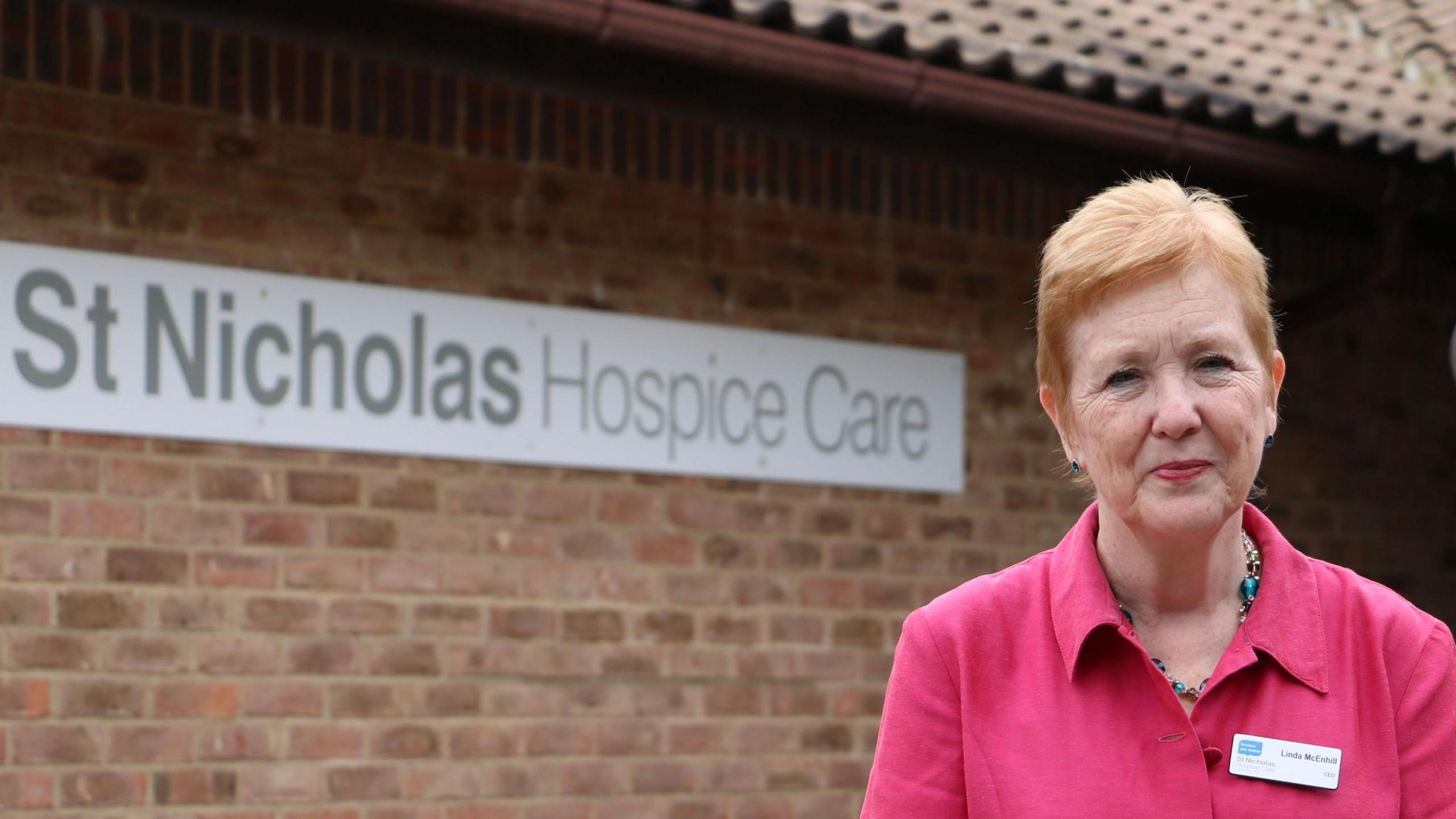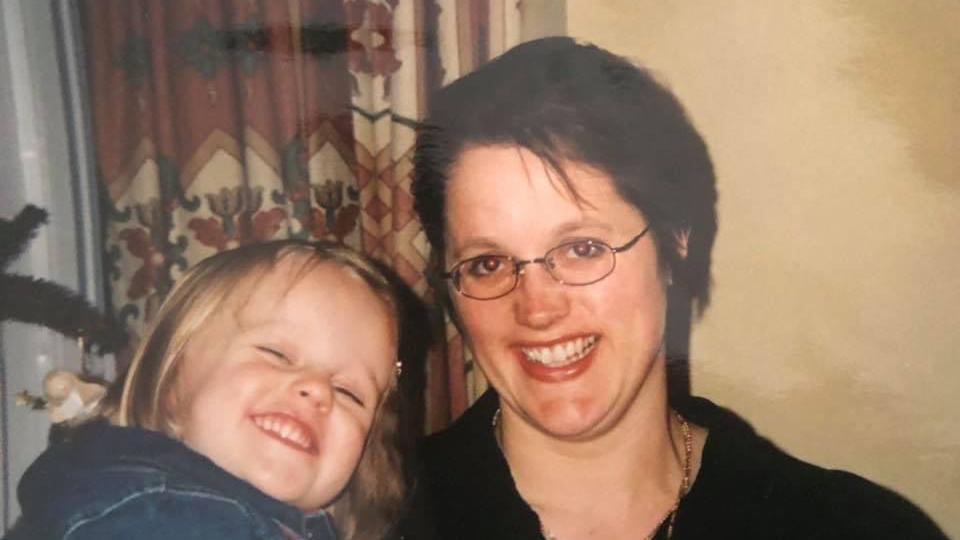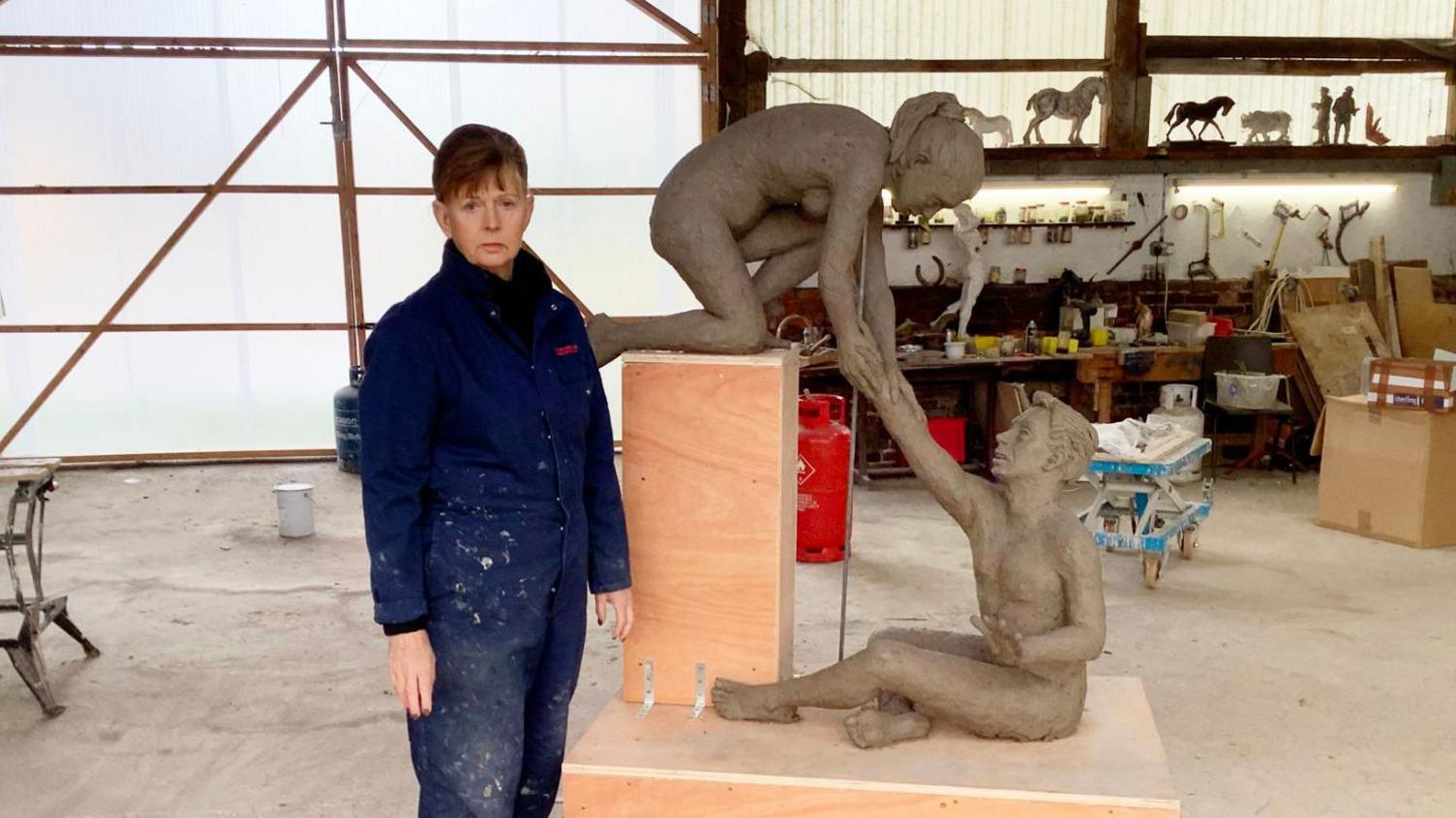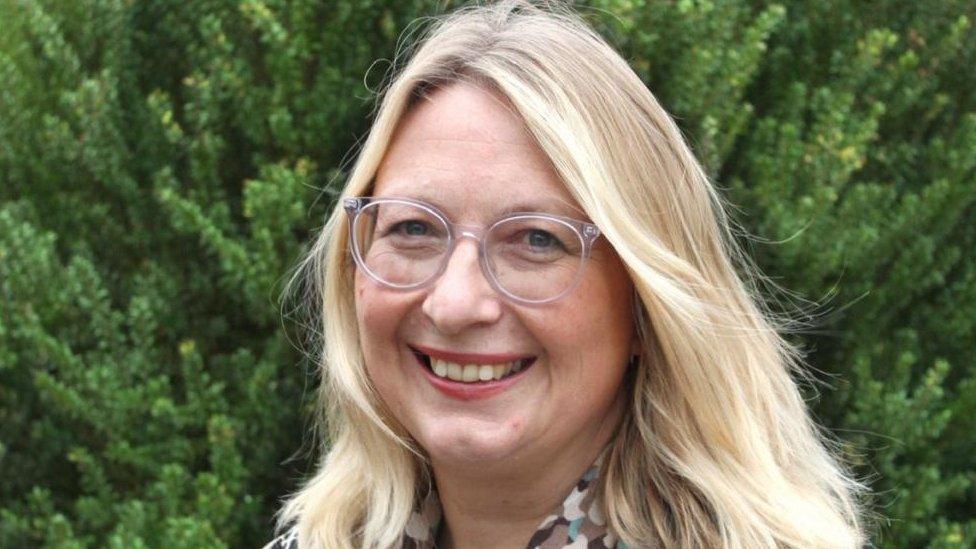Hospice funding cuts puts services at risk - boss

Linda McEnhill, chief executive officer of St Nicholas Hospice Care, said the service should not be compromised by financial instability
- Published
A hospice boss has said its service is "facing a growing financial strain" due to funding issues.
Linda McEnhill, chief executive officer at St Nicholas Hospice Care in Bury St Edmunds, Suffolk, is drawing attention to the challenges it faces to coincide with national Hospice Care Week, which runs until Sunday.
She said the hospice had suffered cuts from the Norfolk and Waveney Integrated Care Board (ICB), responsible for commissioning palliative care service in Thetford in Norfolk.
"Our ability to deliver care should not be compromised by financial instability," Ms McEnhill said.
"Hospices like ours are facing a growing financial strain, as funding sources become less reliable, and costs continue to rise.
"This campaign is about highlighting the urgent need for a sustainable funding model that allows us to focus on what we do best - caring for our patients."
St Nicholas Hospice Care, a registered charity, serves both West Suffolk and Thetford in Norfolk.
According to Ms McEnhill, the hospice had its statutory funding from the ICB cut and saw a loss of an £80,000 annual grant.
She said this had "created a significant funding gap at a time when financial pressures are already high".
"This decision was made without consulting with us, or other key stakeholders," she added.
"Inadequate funding places St Nic's in a very difficult position and we cannot let funding cuts compromise end-of-life care."
According to the hospice, it currently receives some statutory funding to cover about 20% of its costs.
However, it still needed to generate a further £17,500 of income per day to survive.
'A crucial service'

Connie Gibbs (left) was six when she lost her mother Zena to cancer
Connie Gibbs, 25, from Bury St Edmunds, was just six years old when she lost her mum Zena to a brain tumour.
She and her dad were supported by St Nicholas Hospice at the time, which she described as "crucial".
"I used the service called Nicky's Way, external which is a child bereavement programme which enabled me to process what was happening to mum and what was going to happen," she said.
"Once she did pass I was able to get that support from the hospice which was crucial growing up."
Ms Gibbs explained she made use of the hospice again when she was a teenager as she struggled with her grief.
The family have fundraised for the hospice in the past and so far have raised more than £77,000.
"It's so important. They only touched our lives in a small part but there's so many people out there who need the support and need the care," she said.
"It's hard, we're in a cost-of-living crisis, we're asking people to donate and that's really, really difficult.
"They need more funding. They're such a crucial service to the local area and for many, many people."
'Difficult decisions'
A spokesperson for the ICB said: "We are faced with a challenging financial position and we have had to make some difficult decisions, including this one.
"We are sorry that we were not able to allocate another grant to St Nicholas Hospice Care.
"More broadly, we are working with local organisations to look at how we can improve palliative and end of life care."
A Department of Health and Social Care spokesperson said: "This government has inherited huge challenges in the hospice sector, as well as a £22bn black hole in the public finances, so these problems will take time to fix.
"We are determined to shift more healthcare out of hospitals and into the community, to ensure patients and their families receive personalised care in the most appropriate setting, and hospices will have a big role to play in that shift."
Get in touch
Do you have a story suggestion for Suffolk?
Follow Suffolk news on BBC Sounds, Facebook, external, Instagram, external and X, external.
Related topics
Stories like this
- Published30 April 2024

- Published18 April 2024

- Published1 May 2024
